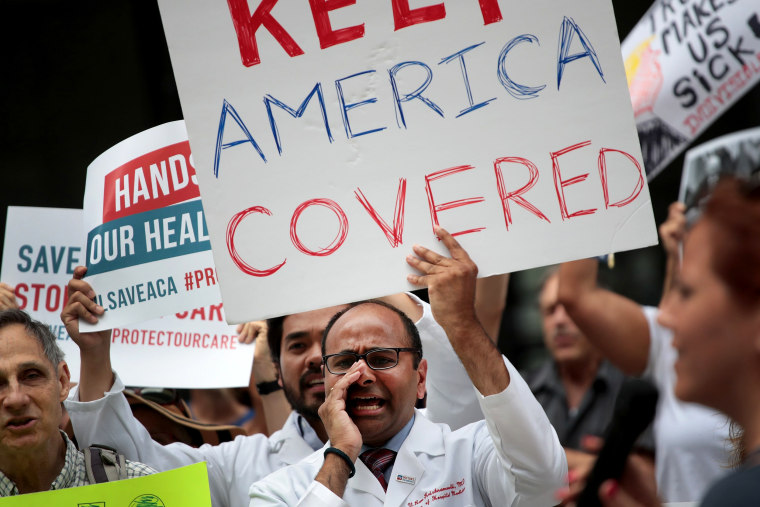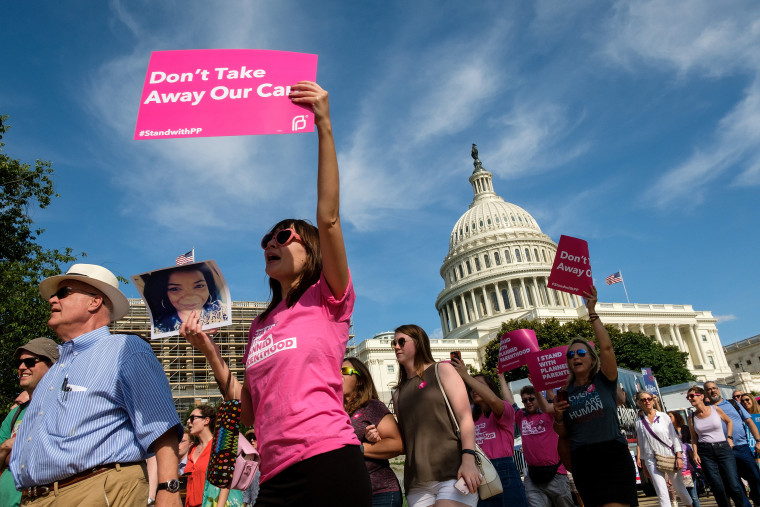The final tax bill being hammered out among Republicans in Congress thoroughly kills one of the most controversial provisions of the Affordable Care Act — the mandate.
The mandate requires just about everyone to have some form of health insurance or pay a fine. The Supreme Court calls it a tax.

It was meant as an incentive so younger, healthier people who may not think they need or want health insurance would get coverage anyway. It was also a means of making sure people do not wait until they are sick to buy insurance.
Health insurance companies need these healthy people in the mix, paying premiums, because it’s unaffordably expensive to cover only sick people.
Related: GOP plans to repeal Obamacare mandate
“Having young and healthy people as part of the insurance pool helps keep premiums manageable for everyone,” a coalition of health and consumer groups, including the American Diabetes Association, the American Cancer Society Cancer Action Network and the American Lung Association, said in a joint statement.
Insurance companies have already said that without the mandate, they’ll have to raise premiums and pass on other costs to people who do have health insurance.
But Republicans note that Americans really dislike being told what to do and they have characterized the mandate as forcing people to buy a product they do not want.
The Congressional Budget Office estimated that ditching the mandate will help reduce the federal budget deficit, because fewer people will buy health insurance at rates subsidized by the federal government. The CBO projects savings of $338 billion between 2018 and 2027.
“The number of people with health insurance would decrease by 4 million in 2019 and 13 million in 2027,” the CBO said.
Related: Rubio comes out against tax bill
“Those effects would occur mainly because healthier people would be less likely to obtain insurance and because, especially in the nongroup market, the resulting increases in premiums would cause more people to not purchase insurance.”
The nongroup market refers to people who buy their own health insurance. Most Americans are covered by an employer. Many are covered by Medicare or Medicaid, a few get military health benefits and the so-called Obamacare markets were meant to help the rest get “nongroup” health insurance.
Related: The potential health effects of the GOP tax bill
Health insurance premiums in this nongroup market will go up by 10 percent, the CBO predicted.
This will hit one group in particular, according to the Commonwealth Fund, which conducts studies in health policy and released a report Thursday on the Affordable Care Act.
“People who buy their own coverage on the individual market and who have incomes above 400 percent of the federal poverty level (about $48,200 for an individual and $98,400 for a family of four) — the threshold for ACA premium subsidies — would face the brunt of the premium increase,” it said.
A 40-year-old customer buying health insurance on one of the federal exchanges would pay $556 more in premiums in North Dakota and $1,264 more in Nebraska, the group calculated.
The $1.5 trillion tax plan is the result of negotiations between Republicans in the House and Senate, which each passed separate tax bills that had to be reconciled. The two bodies will have to vote this final version — some disagreements are still being worked out — soon.

